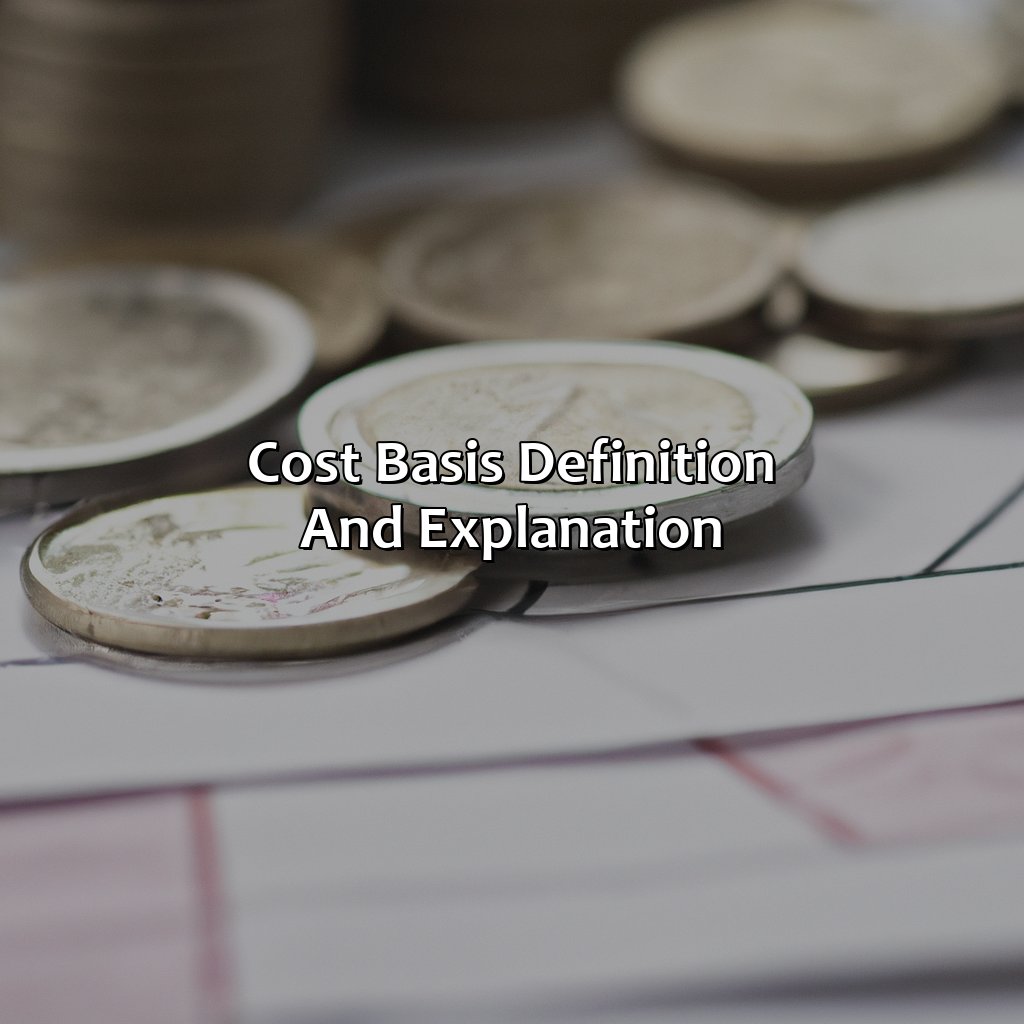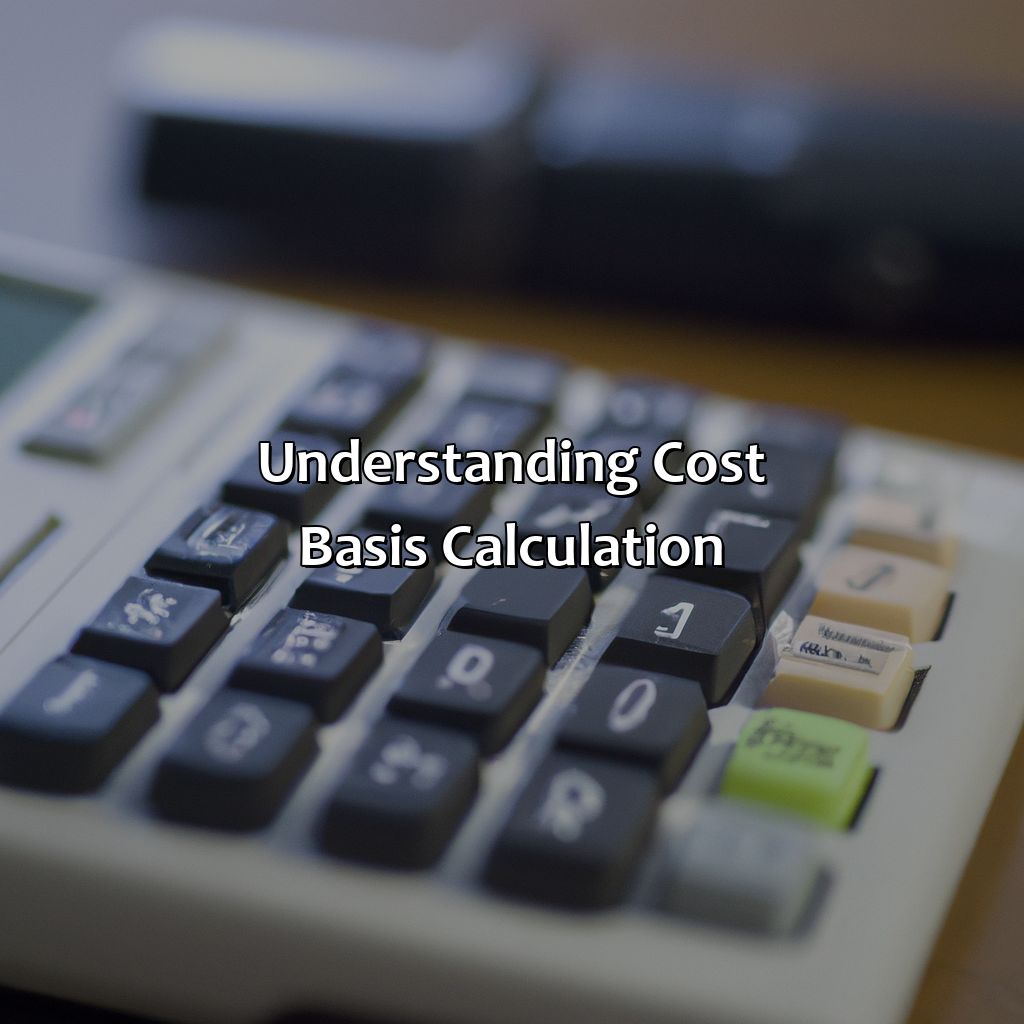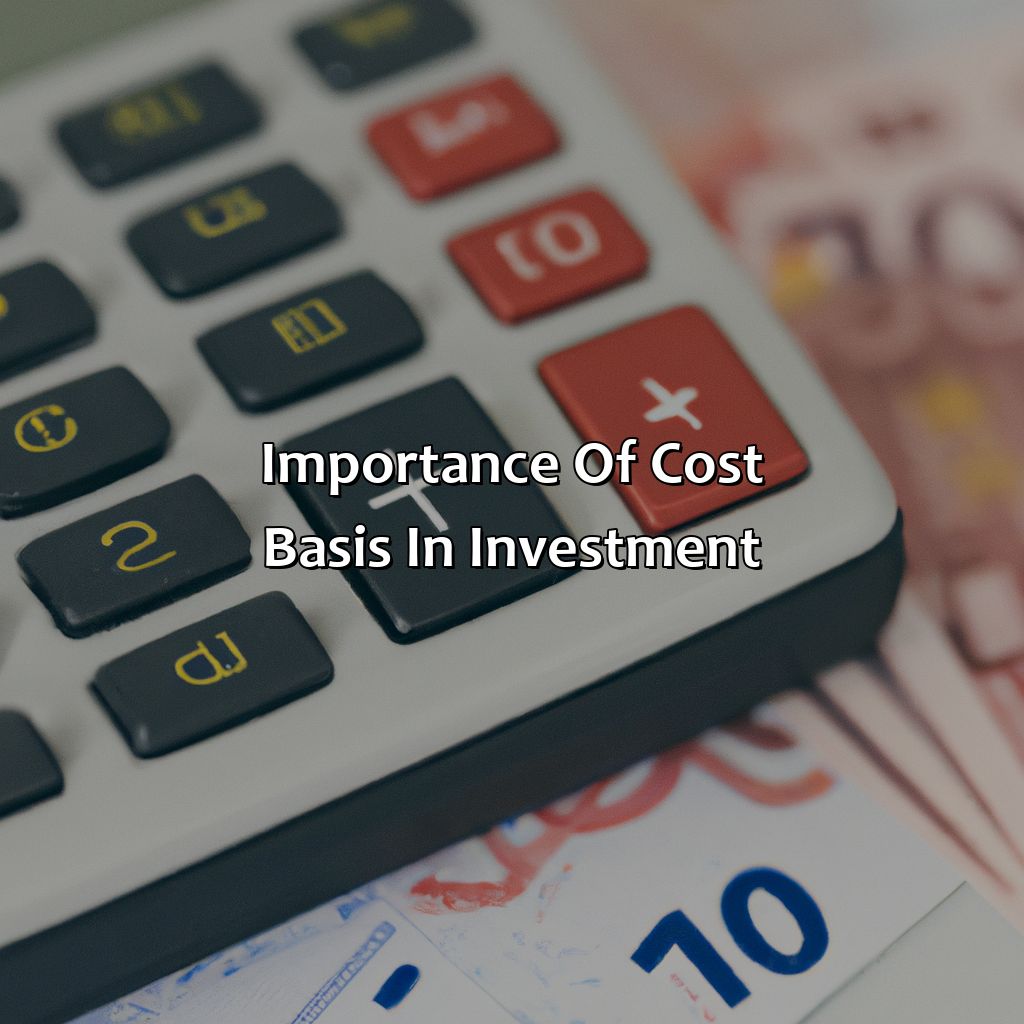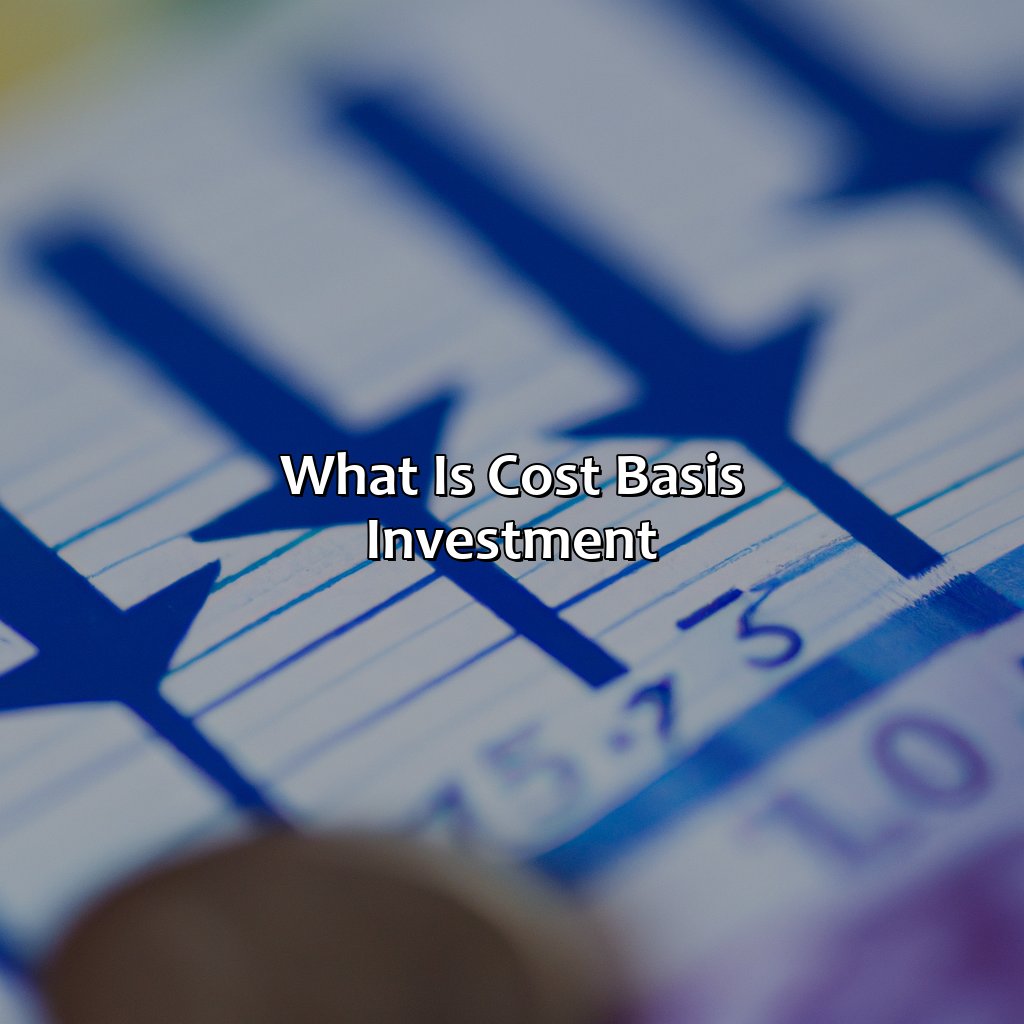What Is Cost Basis Investment?
Key Takeaway:
- Cost Basis Investment refers to the original cost of an investment, including fees, commissions, and expenses. It is used to determine the capital gain or loss when the investment is sold.
- There are different Cost Basis methods investors can use, including First In First Out (FIFO), Specific Identification, and Average Cost. The adjusted cost basis can also be calculated by adding expenses and adjusting for corporate actions like stock splits and dividends.
- Tracking Cost Basis is important for tax purposes, as it affects the capital gains taxes that must be paid. Investors can also use Cost Basis for investment management, to monitor the performance of their portfolio and make informed decisions.
Are you confused about understanding cost basis investments and its tax implications? This article will help you comprehend the importance of cost basis investment and the tax liabilities it may involve. You’ll be able to make smarter, informed decisions about your investments after reading this.
What is Cost Basis Investment?
Investing with cost basis refers to the original value of an asset or investment. Cost basis investments affect the amount of taxes, fees, and capital gains or losses that investors experience. This investment strategy typically involves purchasing a security and assuming legal ownership.
Using cost basis investment allows investors to keep track of returns and profitability accurately. By buying at a specific price, they can determine if their investments have appreciated or depreciated over time. Some common examples of cost basis investments include stocks, mutual funds, and real estate.
One of the benefits of cost basis investment is the ability to minimize taxes by strategically selling assets at specific times. It is essential to understand the tax implications that come with selling a security. By taking into account the cost basis of the investment, investors can avoid overpaying on taxes.
Cost basis investment has evolved throughout history. In the past, stockbrokers would manually calculate the cost basis and communicate this information to clients through paper records. Today, digital platforms provide accurate cost basis calculations, making it easier for investors to manage their portfolios.

Image credits: retiregenz.com by Joel Arnold
Cost Basis Definition and Explanation
A Professional Understanding of Cost Basis Investment
Cost basis investment refers to the original price paid for an asset such as stocks, mutual funds or real estate. This value is used to calculate the capital gain when the asset is sold. It is crucial for tax purposes to determine the amount of tax an investor owes on the sale of an asset.
When a cost basis is not properly recorded, it may result in higher tax obligations. Investors can reduce their capital gains tax liabilities, but they must keep accurate and complete records of their cost basis.
Some unique details to note about cost basis investment include the fact that mutual fund companies now provide cost basis information to investors, making it easier for investors to determine their tax liability. Also, recent tax laws have made it mandatory to use the specific identification method when calculating cost basis for a particular asset.
Interestingly, the origin of cost basis investment can be traced back to the Tax Reform Act of 1976, which required investors to report the purchase price of any securities sold. From that time, there has been a growing emphasis on accurate reporting of cost basis for tax purposes.

Image credits: retiregenz.com by Harry Arnold
Understanding Cost Basis Calculation
Calculating the cost basis investment is essential to understanding the gains or losses made from the sale of an asset. It involves calculating the original price of an investment and incorporating any additional costs, such as taxes and fees. The calculation method may differ depending on the asset type, such as stocks, bonds, and real estate.
To calculate the cost basis for stocks, investors need to consider various factors such as purchase price, reinvested dividends, and any commission paid. For bonds, the calculation may include the coupon rate and the bond’s purchase price. Real estate cost basis can incorporate expenses such as property taxes and improvements made to the property.
Unique details to consider may include the adjusted cost basis, which takes into account any stock splits or dividend reinvestments that may have occurred. Another factor to consider is the holding period, which can affect the taxes owed on capital gains.
Pro Tip: Keeping an accurate record of your investments and their cost basis can help reduce tax liability and simplify the reporting process.

Image credits: retiregenz.com by David Jones
Importance of Cost Basis in Investment
Investing in the financial market is never an easy task, and one of the crucial elements for investors to consider is the cost basis of their investments. The cost basis in investment refers to the amount that you paid for a security or asset, including fees and commissions. The importance of cost basis lies in determining the gains or losses on an investment and ultimately the taxes that an investor will pay. By understanding the cost basis of your assets, you can make informed decisions that can help you minimize taxes and maximize profits.
Knowing the cost basis of your assets can be helpful in many ways. For instance, it will enable you to accurately calculate the capital gains or losses on your investments, which is essential when making decisions about buying or selling securities. Additionally, it can help you avoid paying unnecessary taxes on gains that may not be taxable. By tracking the cost basis of your investments, you can optimize your portfolio to yield maximum returns while minimizing tax implications.
It is worth noting that different assets have different rules for cost basis calculation, so it is essential to research carefully. Some investments such as mutual funds, exchange-traded funds (ETFs), and stocks bought before 2011 require additional work to ensure accurate calculations. It is, therefore, essential to consult a tax professional or use reliable software to help you calculate your cost basis accurately.
Pro tip: Keep accurate records of your investments, including purchase prices, fees, and commissions, to make it easier to calculate cost basis when it’s time to sell. By doing so, you can avoid relying on estimates and ensure accuracy when calculating taxes.

Image credits: retiregenz.com by David Arnold
Five Well-Known Facts About Cost Basis Investment:
- ✅ Cost basis is the original value of an asset, used for tax purposes and to calculate capital gains and losses. (Source: Investopedia)
- ✅ If you don’t know the cost basis of an asset, the IRS assumes it is $0, and you may end up paying more taxes than necessary. (Source: TurboTax)
- ✅ There are several methods of calculating cost basis, including first-in, first-out (FIFO), specific identification, and average cost. (Source: NerdWallet)
- ✅ Inherited assets often have a stepped-up cost basis, meaning the cost basis is adjusted to the value at the time of the previous owner’s death, reducing potential capital gains taxes. (Source: Forbes)
- ✅ Keeping accurate records of cost basis and related transactions is important for tax purposes and can save you money on capital gains taxes. (Source: The Balance)
FAQs about What Is Cost Basis Investment?
What is cost basis investment?
Cost basis is the original value of an asset, such as a stock, that you own. It is also known as the “tax basis” because it is used to determine the capital gains and losses for tax purposes. Cost basis investment, therefore, refers to the purchase of an asset and keeping track of its original cost to help calculate capital gains or losses at the time of sale.
Why is cost basis important?
Cost basis plays a crucial role in determining the capital gains or losses when an asset is sold. By knowing the cost basis of an investment, an investor can accurately calculate how much they gained or lost from the sale. This is important for tax purposes as well as for evaluating the performance of their portfolio.
How is cost basis calculated?
The cost basis is typically calculated by taking the original purchase price of an asset and adding any associated transaction costs, such as commission fees. The cost basis can be adjusted for events such as stock splits or dividend reinvestments.
What are some methods for tracking cost basis investment?
There are a few different methods for tracking cost basis investment. One common method is FIFO (First-In, First-Out), where the investor sells the shares they purchased first. Another method is LIFO (Last-In, First-Out), where the investor sells the shares they purchased most recently. Average cost basis is another method, where the investor takes the total cost of all shares purchased and divides it by the total number of shares owned.
What is the difference between cost basis and market value?
The cost basis of an investment is the original value of the asset, while the market value is the current value of the asset. The market value can change over time based on factors such as supply and demand, while the cost basis remains the same unless there are adjustments made to it.
How does cost basis impact taxes?
Cost basis plays a role in determining the amount of capital gains or losses that must be reported on an investor’s tax return. If an investor sells an asset for more than its cost basis, then they will have a capital gain and will owe taxes on that gain. If an investor sells an asset for less than its cost basis, then they will have a capital loss which could be used to offset other gains or carried forward to future tax years.
